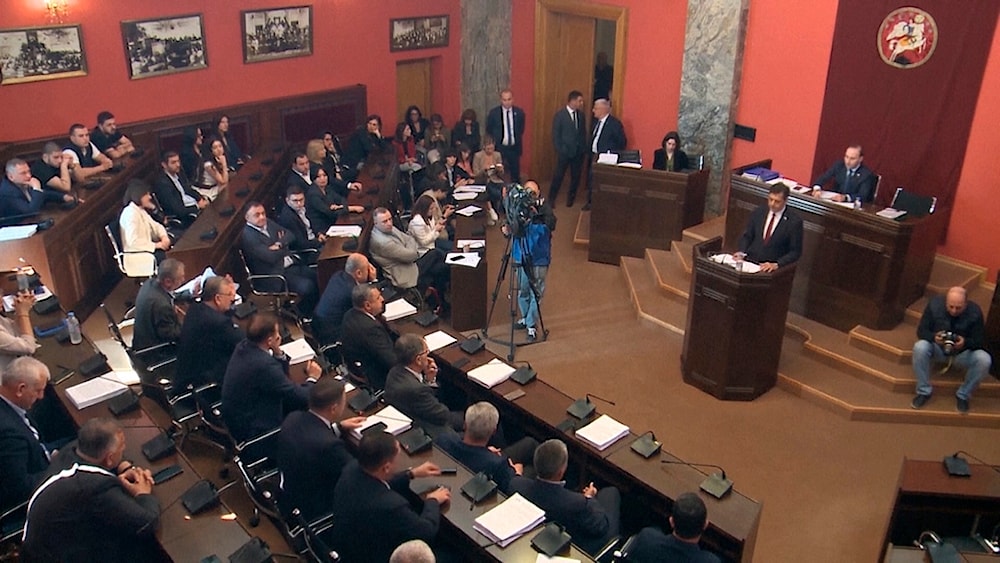Georgia moves closer to adopting foreign agent registration law
Originally proposed by the ruling Georgian Dream party in February, the bill aims to increase transparency regarding foreign-funded entities operating in the country.
-

In this photo taken from video released by Georgian Parliamentary television on Monday, May 27, 2024, lawmakers attend a Georgian parliament committee session in Tbilisi, Georgia (AP)
The Georgian Parliament has advanced a bill on foreign influence, approving it in a second reading on Tuesday. The legislation, which aligns with the US Foreign Agents Registration Act (FARA), mandates that organizations receiving more than 20% of their funding from abroad register as foreign agents.
Parliament Speaker Shalva Papuashvili confirmed the result, stating, "Eighty-six [votes] for, not a single one against. The bill is adopted in the second reading."
Originally proposed by the ruling Georgian Dream party in February, the bill aims to increase transparency regarding foreign-funded entities operating in the country. Supporters argue that the measure is necessary to safeguard national sovereignty from external influence, while opponents warn that it could restrict the activities of civil society organizations and independent media.
Protests and Political Tensions
The bill has triggered mass demonstrations in Tbilisi and other cities, with opponents claiming it could be used to suppress dissent. Clashes have erupted between protesters and security forces, reflecting the political divide in the country. Georgian President Salome Zourabichvili vetoed the bill, arguing it runs counter to the country's democratic aspirations, but the ruling party, which holds a majority in parliament, has pushed forward with its approval process.
The government maintains that the legislation is not intended to suppress opposition but rather to ensure that organizations operating in Georgia are transparent about their financial sources. Georgian Dream leaders have insisted that the bill mirrors similar regulations in Western countries, including the United States, and is not inspired by Russian policies, as some critics claim.
The National Endowment for Democracy (#NED) announced its suspension of operations, due to the freeze of its assets by the US Administration. This was overdue, and not unexpected.
— Shalva Papuashvili 🇬🇪 (@shpapuashvili) February 26, 2025
The foundation, which, over four decades ago, was created for promoting freedom and democracy… pic.twitter.com/2pePpaaMDV
International Reactions and Strategic Considerations
The bill has drawn mixed reactions internationally. The European Union and the United States have raised concerns that it may hinder Georgia's aspirations for deeper integration with Western institutions. The US has gone as far as suspending its strategic partnership with Georgia, citing concerns over the country's political direction.
At the same time, some analysts argue that Georgia's government is pursuing a pragmatic approach that prioritizes national interests over external pressures. The Georgian leadership insists that the country remains committed to its long-term strategic goals but will not allow foreign-backed entities to dictate its internal affairs.
Read more: Georgia succeeded haulting launch of second front on Russia, PM says

 3 Min Read
3 Min Read








